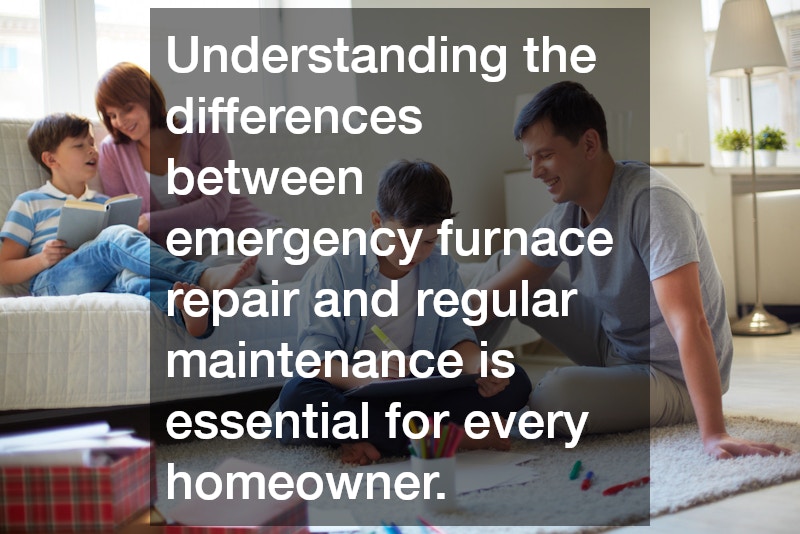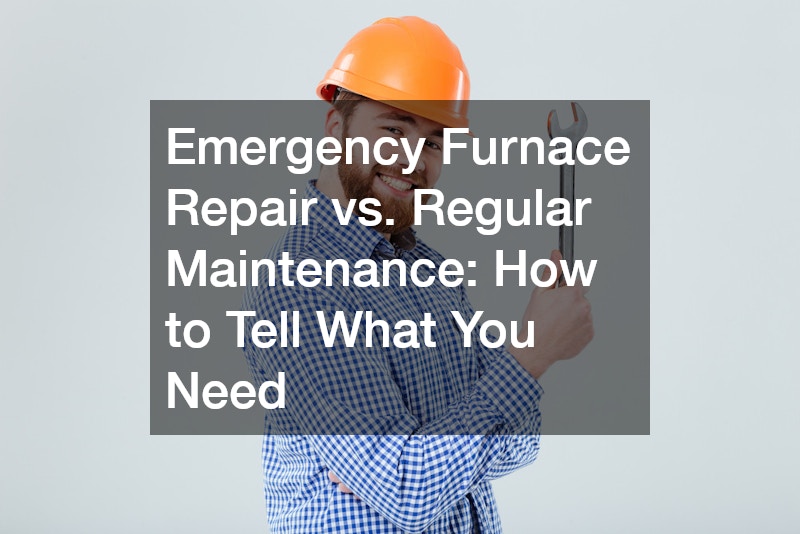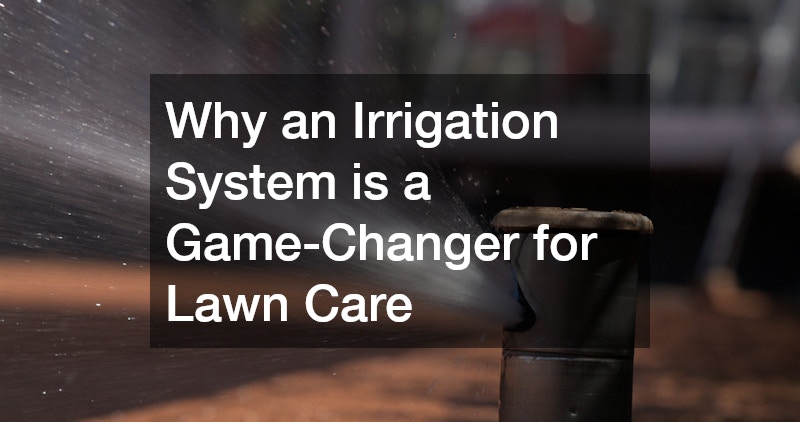As the colder months approach, ensuring your furnace is in top working condition becomes increasingly important. Many homeowners often face the dilemma of choosing between emergency furnace repair and regular maintenance. In understanding how to make the right decision, one needs to know the differences and benefits of each choice. This article aims to clarify when you require emergency furnace repair and when regular maintenance will suffice.
By the end, you’ll have the necessary insights to make informed decisions about maintaining your furnace.
Understanding Emergency Furnace Repair
Emergency furnace repair becomes essential when your furnace fails unexpectedly, leaving you without heat in frigid temperatures. These repairs are typically urgent and must be addressed immediately to prevent further system damage or potential safety hazards. A common scenario for needing emergency furnace repair is when the furnace stops working entirely, and other troubleshooting methods have failed. In such cases, relying on professional technicians to efficiently diagnose and resolve the issue is crucial. Their expertise ensures that the furnace is restored to working condition as quickly as possible.
Another situation that may require emergency repairs is when your furnace is making loud or unusual noises. These noises can indicate a variety of problems, including loose components or a malfunctioning blower. Addressing the issue promptly can prevent more significant damage and higher repair costs. By understanding these warning signs, homeowners can act proactively and avoid potentially dangerous situations. Scheduling immediate service with trained professionals is vital to maintaining a safe and functional heating system.
Foul odors emanating from your furnace may also be a sign of an emergency that requires immediate attention. Various factors, such as gas leaks or electrical issues, can cause these smells. Ignoring them can be dangerous, possibly leading to carbon monoxide exposure or even fire hazards. In such situations, it’s best to vacate the premises and contact emergency services alongside a furnace repair expert. Taking swift action helps safeguard both your home and your family’s health.
Reviewing the Importance of Regular Furnace Maintenance
Regular maintenance is the key to extending the lifespan of your furnace and avoiding emergencies. Scheduling routine check-ups can help identify and fix minor issues before they escalate into significant problems. During routine maintenance, technicians clean components, check for wear and tear, and optimize system performance to ensure peak efficiency. This proactive approach not only saves money on future repairs but also reduces energy consumption. As a result, homeowners can enjoy consistent warmth throughout the colder months without unexpected interruptions.
Regular maintenance can also improve indoor air quality by ensuring the furnace’s air filters are clean and functioning correctly. Dirty or clogged filters can restrict airflow, forcing the furnace to work harder and use more energy. By replacing filters regularly, homeowners can prevent dust and allergens from circulating throughout their homes. Improved air quality contributes to better health outcomes for all household members, especially those with respiratory issues. Therefore, regular furnace maintenance is vital in promoting a healthier living environment.
Furthermore, regular maintenance checks can also enhance systems’ safety by confirming all components are operating as they should. Technicians can alert homeowners to potential safety hazards, such as faulty wiring or gas leaks. Addressing these early helps avoid dangerous situations and costly repairs. Additionally, well-maintained furnaces operate more efficiently, which can lead to noticeable savings on energy bills. Committing to regular maintenance provides peace of mind and supports long-term savings.
Deciding Between Emergency Repair and Regular Maintenance
When deciding between emergency furnace repair and regular maintenance, assessing the immediacy of the issue is crucial. If the furnace suddenly stops working during extreme cold, an emergency repair is likely necessary. Conversely, if the furnace is operating but exhibiting minor issues, scheduling a regular maintenance service might suffice. Homeowners should pay attention to warning signs, such as rising energy bills or uneven heating, which could indicate a need for maintenance. By differentiating between emergencies and routine issues, homeowners can manage their heating systems more effectively.
Budget considerations can also influence the decision between emergency repair and maintenance. Emergency repairs, often required during inconvenient times, can be more costly due to immediate service calls and parts. Regular maintenance, usually less expensive, helps catch problems early and reduces the likelihood of future costly repairs. Homeowners should weigh the long-term financial benefits of consistent maintenance against the immediate expenses of emergency services. By budgeting for regular maintenance, unexpected costs can be minimized.
Understanding the differences between emergency furnace repair and regular maintenance is essential for every homeowner. Recognizing and responding appropriately to signs of furnace distress can prevent inconvenient and costly breakdowns. By prioritizing regular maintenance, homeowners can ensure their heating systems run safely and efficiently, ultimately saving time and money. Those who are proactive in their furnace care can enjoy uninterrupted warmth and comfort throughout the winter season. As you prepare for colder weather, consider scheduling regular maintenance to safeguard your home’s heating for the long term.



